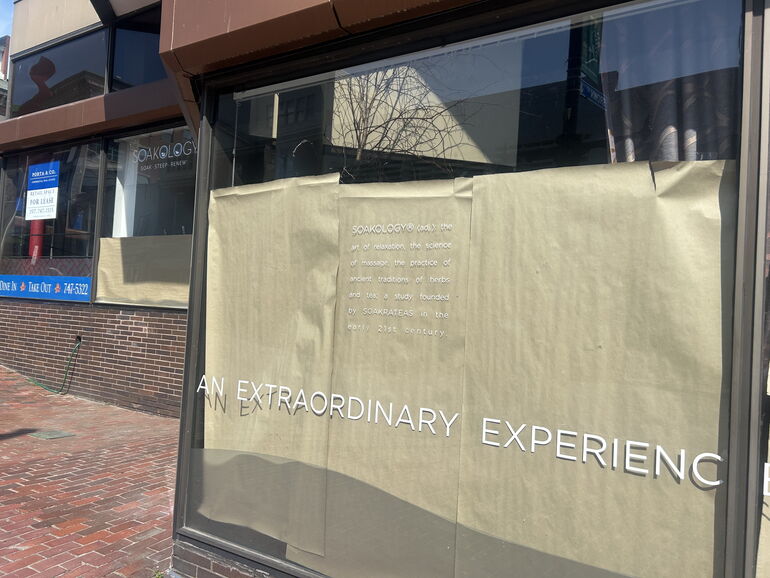Portland’s proposed commercial vacancy ordinance gets pushback in City Hall meeting
 PHOTO / RENEE CORDES
A vacant storefront at 511 Congress St.
PHOTO / RENEE CORDES
A vacant storefront at 511 Congress St.
Portland city officials heard calls for action Tuesday night about how to address storefront vacancies and vagrancy on the downtown Congress Street corridor.
Business leaders said the proposed commercial vacancy ordinance would be counterproductive, put further strain on property owners and ultimately not solve the problem.
Commercial real estate broker and city resident Joe Malone said that the ordinance is “ill conceived” and “another layer that makes it intolerable for commercial landlords.”
The proposal would impose a 90-day grace period to fill a space before sanctions would take effect.
“It’s not uncommon for a space to be vacant for six to nine months,” Malone said via Zoom during the hybrid meeting. “You can’t get a deal done in 90 days. I encourage you to reject the ordinance in total.”
The growing number of vacancies along Congress Street and ongoing instances of vagrancy, drug use, public drunkenness and destruction of property has recently come to a head for residents, landlords and tenants. The Portland Regional Chamber of Commerce recently circulated a petition urging the city to take immediate and productive action.
The vacancy ordinance has been proposed by the city’s Housing and Economic Development Department as “one tool in the toolbox" to revitalize the struggling district, according to the city's top economic development official, Greg Watson.
The proposal calls for a new registry to track vacancies, more collaboration between property owners and the city in filling the spaces. It also proposes landlords fill empty storefronts with some form of temporary art or face a fine.
Landlords who fail to comply and whose storefronts remain vacant for more than 90 days could face fines, unless they’re granted a waiver. The ordinance has yet to be reviewed by the full City Council but is expected to be addressed over the next few months.
'Ill-conceived' measure
Portland Regional Chamber’s director of advocacy, Eamonn Dundon, said that the downtown ordinance, as conceived, would not address the root causes of the issues along Congress Street, “which are substance abuse and related behavioral issues.”
Ed Gardner, who owns 511 Congress St., said the ordinance “is the total opposite of what’s needed.” Gardner said he has lost two long-time tenants and expects to lose a third. One tenant had operated a business in his building for 10 years. “But she couldn’t deal with continuing to pick up needles and shoo people away from her doorway," he said.
East Bayside resident George Rheault said the ordinance was “completely disconnected from reality,” and questioned how temporary uses of the vacant spaces for art exhibits or experiences, as proposed, would affect landlords’ liability insurance.
Rheault added that the Arts District had become “an open-air insane asylum, and has been for a long time.”
Planning Board member David Silk questioned how the ordinance would address the definition of art, noting that a multimedia exhibit with music and flashing lights might not be considered art by some. “And would painting the windows be enough to earn a waiver?”
The board will next address the topic at a July 22 meeting.













0 Comments